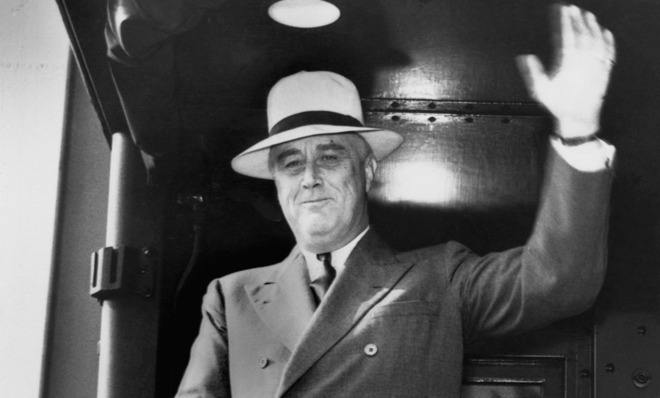Today in history: November 5
In 1940, FDR won an unprecedented third term as president

A free daily email with the biggest news stories of the day – and the best features from TheWeek.com
You are now subscribed
Your newsletter sign-up was successful

November 5, 1862: President Lincoln fired Gen. George McClellan as commander of the Union Army for the second time. Lincoln was frustrated that McClellan seemed unable to engage Confederate General Robert E. Lee's Army of Northern Virginia. Lincoln gave McClellan two chances, and the general capitalized on neither of them. It was the second instance that particularly infuriated Lincoln. At Antietam, Maryland, on Sept. 17, 1862 — the single bloodiest day in American history — McClellan, despite knowing Lee's plan and having a superior force at his disposal, fought Lee to a standstill but failed to defeat him. He also failed to pursue Lee's forces as they withdrew across the Potomac River to Virginia. McClellan, Lincoln famously said, has a "case of the slows."
November 5, 1939: With World War II underway, Congress agreed to a proposal by President Franklin Roosevelt to amend the Neutrality Act and allow nations to buy weapons from the United States. FDR's proposed changes to the Neutrality Act were clearly aimed at benefiting Britain and France, which had just declared war on Nazi Germany. Roosevelt successfully argued that U.S. neutrality laws prior to the war may have given passive "aid to an aggressor" because it denied aid to victimized nations.
A year later, after France had fallen to the Nazis and Britain stood alone — and with German U-boats threatening American ships in the Atlantic — the Neutrality Act was again amended to allow the arming of merchant vessels. In December 1941, the Act was rendered irrelevant by the bombing of Pearl Harbor and America's subsequent entry into World War II.
The Week
Escape your echo chamber. Get the facts behind the news, plus analysis from multiple perspectives.

Sign up for The Week's Free Newsletters
From our morning news briefing to a weekly Good News Newsletter, get the best of The Week delivered directly to your inbox.
From our morning news briefing to a weekly Good News Newsletter, get the best of The Week delivered directly to your inbox.
November 5, 1940: Franklin Roosevelt won an unprecedented third term as president. He would win a fourth term in 1944.
November 5, 1968: Capping one of the most turbulent years in American history, Richard Nixon was elected president, defeating Vice-President Hubert Humphrey. Check out The New York Times' front page on the '68 election of Richard Nixon here.
Quote of the Day
"Our national determination to keep free of foreign wars and foreign entanglements cannot prevent us from feeling deep concern when ideals and principles that we have cherished are challenged." - Franklin D. Roosevelt
A free daily email with the biggest news stories of the day – and the best features from TheWeek.com
More from West Wing Reports...
-
 ‘Restaurateurs have become millionaires’
‘Restaurateurs have become millionaires’Instant Opinion Opinion, comment and editorials of the day
-
 Earth is rapidly approaching a ‘hothouse’ trajectory of warming
Earth is rapidly approaching a ‘hothouse’ trajectory of warmingThe explainer It may become impossible to fix
-
 Health insurance: Premiums soar as ACA subsidies end
Health insurance: Premiums soar as ACA subsidies endFeature 1.4 million people have dropped coverage